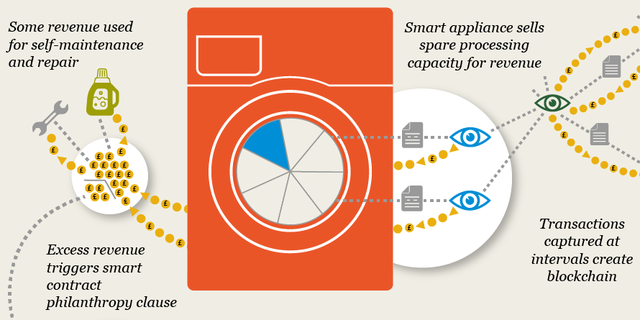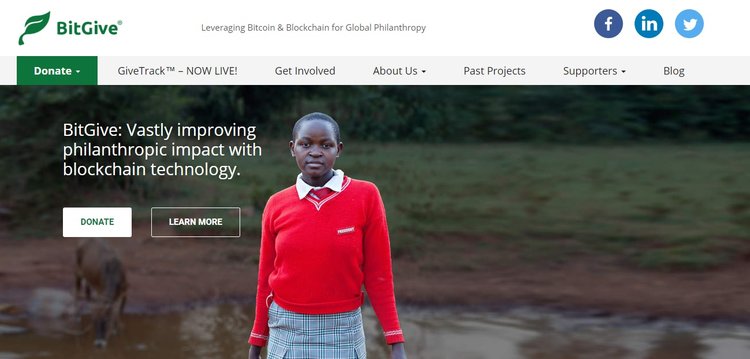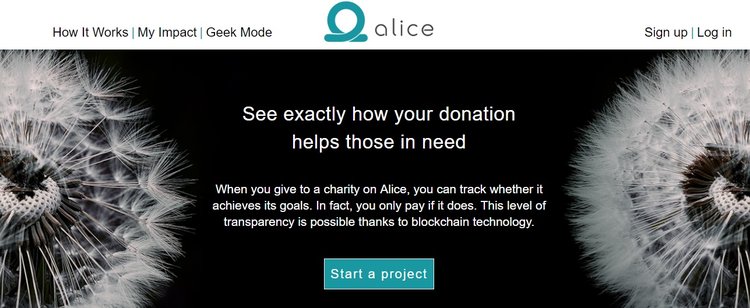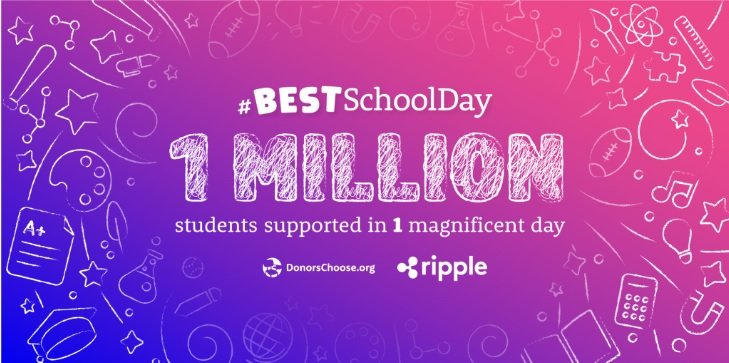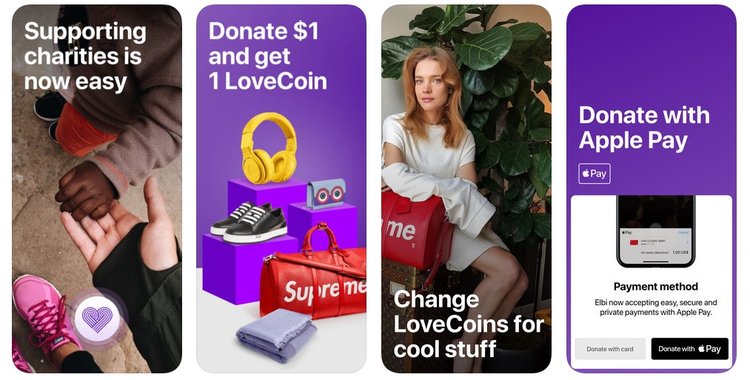Technology
Blockchain is not just a resource which increases the economic efficiency of a private businesses. It’s also a new technological standard which introduces values such as transparency and all round protection of information. Also the technology can radically change how a non-profit organization works, how it's funded and the way it rallies together volunteers and social entrepreneurs. In fact, it changes our entire perception of how a charity can operate.
Introducing a blockchain to a charity could be a key to collecting more donations while efficiently controlling and verifying the outlay. Using a distributed ledger system (DLT) to store income data is the optimal solution to increase the level of trust donors have in a charity. DLT is a system most commonly associated with blockchain and is a decentralized way of storing data whereby all users can view the synchronized datasheet and thus becoming ‘witnesses’ to the recorded transactions.
How a charity may benefit from a blockchain?
- Maximize payment transparency
- Control over spending targets
- No need for complex accounting
- New opportunities for charities to raise funds
- Low or zero transaction costs
Some issues have been plaguing charitable causes for years. Mainly, its preventing people from freely donating to the organizations which turns some potential contributors off from becoming involved with charities all together. However, since Blockchain as a technology which allows for smart contracts and digital transactions, it could provide an answer to the issue.
Thanks to the blockchain, intermediaries can be eliminated from the process since all transactions are conducted out in the open. This creates a foundation for building trust between the charity and its participants which is a key condition for creating a successful social initiative.
IoT – Blockchain – Charity
In 2014 a consulting company Gartner which specializes in information technology markets has come up with the term "programmable economy" which is a combined use of blockchain and the Internet of Things (IoT) technology - a system of interconnected computer devices.
The programmable economy is based on the use of cryptocurrencies and smart technologies. It's dominated by new types of markets and new forms of value exchange, and already we see projects that utilize devices that buy and sell performance to and from each other.
Blockchain enables a connection to a large number of interacting devices, creating a single global IoT network. It's already widely used in new products and services which promote environmentalism, saving of energy, improve health care, and so on.
Thus, we can also consider transferring the interaction potential of the IoT and blockchain to the context of a charity. For example, if a washing machine can theoretically self-lease to utilize its free capacity, then their owners can receive a certain percentage of income form that activity.
This was showcased by the Charities Aid Foundation (CAF), where in a report "Giving Unchained - Philanthropy and the Blockchain," they provided an example of how a "smart" household appliance, connected to the blockchain will help generate resources. The owners can subsequently obtain additional income which the charity suggests can be donated.
The chart shows how the charitable washing machine "Altruistic Industries Caritas 3,000" operates. The device has an additional menu that allows you to adjust where the revenue obtained is send and change its amount. The software which utilizes smart contracts enable the user to choose a specific cause or a charitable organization.
Charitable Blockchain Projects
Several charities and social projects have already successfully adopted the blockchain into their operations. Now some large crypto companies transfer money to philanthropy in virtual currency, as charities open up to donations in Bitcoins and other cryptocurrencies. Projects of social orientation are also created on the basis of the blockchain.
BitGive
In 2013 Connie Gallippi founded the BitGive Foundation, which became the first registered NGO accepting Bitcoins. User who send cryptocurrency to the charity can make use of the real time tracking system to see how it's being used. The project is also known for its cooperation with international organizations as well as small charitable firms. Connie is confident that she has paved an easy road for charitable organizations and donors to interact. BitGive is "vastly improving philanthropic with blockchain technology." Connie is also confident that eventually the blockchain technology will become an absolute must for any charity, since the technology is extremely effective. It allows for protection against fraud while enabling faster transaction processing.
In October 2017, BitGive founder announced the launch of a GiveTrack project, a multi-purpose platform for donations based on a blockchain. With the help of the service, users can make transfers and then track all other financial transactions around the world. Connie claims GiveTrack is different from all other charitable platforms because of its simple to use. The platform utilizes the Bitcoin, and does not work with smart contracts or tokens. GiveTrack users can see where and how the tools are being used, making the work of a charitable projects transparent.
Alice.si
A UK-based project Alice.si is "a platform that brings transparency to social funding through blockchain technology." In its title, si stands for social impact. The Platform built on the Ethereum blockchain and allows charitable organizations to build o their donations. The platform clearly sets out how the money donated was spend.
"We incentivize social organizations (charities, NGOs, social enterprises) to run projects transparently, by making sure that they get paid more when they achieve their goals. The performance of each project is publicly available, making it easier for funders (philanthropic organizations, impact investors, small donors) to identify and help scale social projects that actually work," project website says.
Using Ethereum-based smart contracts Alice.si "freezes" donations until a charitable organizations can demonstrate results which are then verified by an independent third party.
Pineapple Fund
In 2017, an unknown Bitcoin millionaire announced the opening of the Pineapple Fund, donating to charitable organizations across the world.
"Bitcoin has changed my life, and I have more money than I can ever spend. My goals, goals, and motivations in life have nothing to do with. So I'm doing something else: donating the majority of my Bitcoins to charitable causes. I'm calling it The Pineapple Fund," he said.
Now the Bitcoin-fund has completed its mission, during which 5,104 BTCs were donated to various non-profit organizations, support a range of projects, including the delivery of drinking water to African countries and protecting digital information rights.
Ripple Donation
In March 2018, Ripple gave out $29M XRP in support to the America’s public schooling system through DonorsChoose.org. According to the company's representatives, the donation covered all sponsorship requests, that were posted on the DonorsChoose website at the time.
"Our donation fulfilled every request listed on the nonprofit’s website yesterday. Today, nearly 30,000 public school teachers in every state and approximately one million students are receiving books, school supplies, technology, field trips, and other resources vital for learning through DonorsChoose.org," Ripple's website said.
The donation was made in the Ripple (XRP), the Ripple network’s cryptocurrency. Ripple choosing DonorsChoose as the recipient is not a coincidence, since the organization seeks to make education more accessible. This echoes in Ripple’s message relating to the global financial system.
Famous Personalities in Blockchain Charity
Celebrities also participate in crypto-charities. For example, at the start of 2018, the SENS Research Foundation (SRF), a leading Silicon Valley nonprofit decided to focus on the age related diseases, was announcing a receipt of $2.4 million in Ethereum from Vitalik Buterin, the co-founder of Ethereum.
SRF was founded in 2009 by Aubrey de Grey, a British gerontologist, who studies rejuvenating therapies to extend the biological limit of people's lives. In the past, SRF also received two large Bitcoins donations form the Pineapple Fund, which was mentioned earlier.
"I've been a fan of Aubrey's work since I first read Ending Aging when I was a teenager, and I am happy to have been blessed with the opportunity to personally support SENS's efforts. Their focus on creating solutions to the diseases of aging, one of the greatest problems facing humanity, is very much in line with my goal to positively impact the lives of millions of people around the world," Vitalik Buterin said.
Additionally, the Pineapple Fund together with Buterin made a donation to the Internet Archive. Ethereum co-founder donated 100 ETH to a digital media charity with The Pineapple Fund matching all donations up to one million dollars. The Internet Archive is a non-profit organization founded in 1996 in San Francisco. The archive collects copies of web pages, graphic materials, digital recordings and software. The organization provides a long-term archiving of the collected material and free access to its databases for the general public.
Also in January 2018, a Russian supermodel and philanthropist Natalia Vodianova created a mobile application called Elbi, available for download in Canada, Russia and India. The app allows users to make contributions to charitable causes in exchange for an internal LoveCoins cryptocurrency, which can be used to purchase goods from famous brands. The list of partners includes: Givenchy, Dior, Fendi and Christian Louboutin. The additional function of ElbiDrop allows donors to compete among themselves for exclusive items. A winner of the competition is the one that collects the most LoveCoins in the 24 hour period.
Charities seem to be exceedingly willing to utilize blockchain in their work. So far, the blockchain technology is mainly associated with finance or logistics. However, a blockchain can impact people’s lives directly. In terms of fundraising, non-profit organizations tend to set themselves the task of increasing donor confidence and the blockchain is perfectly placed to address this goal since it provides full transparency of transactions. The technology also helps to accelerate transactions while minimizing the fees which makes the process more enjoyable and user friendly for the donors.



